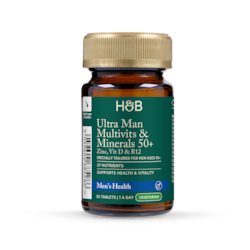20% off £35
Men's Multivitamins
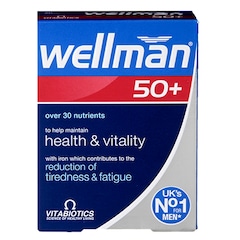
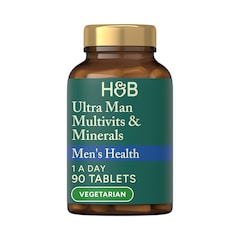
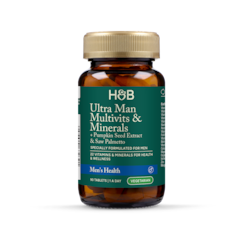
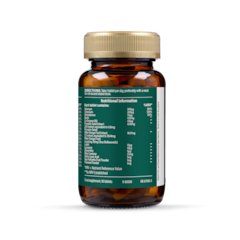
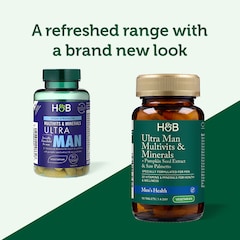
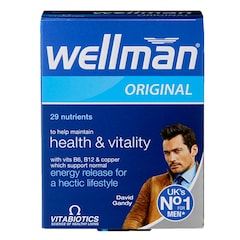
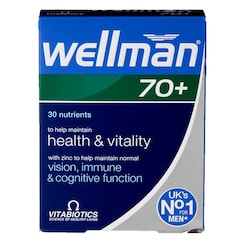
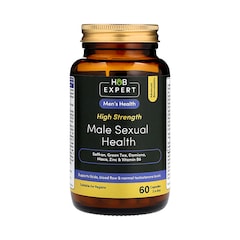
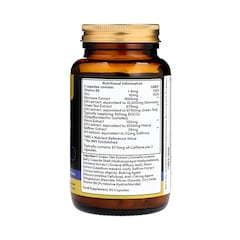
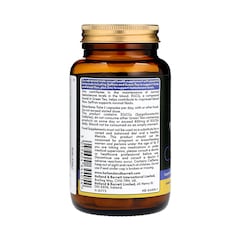
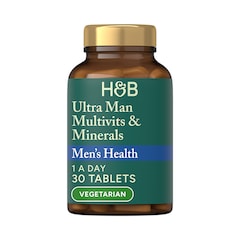
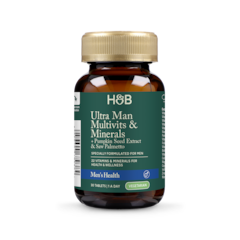
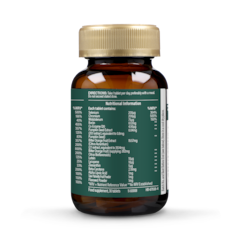
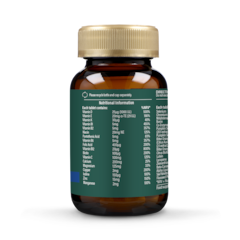
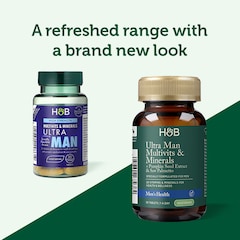
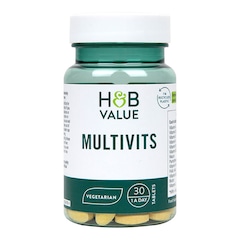
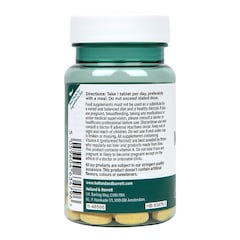
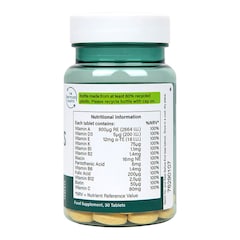
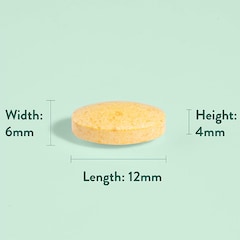
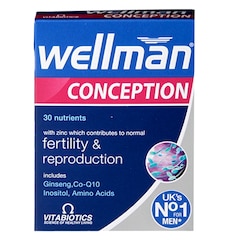
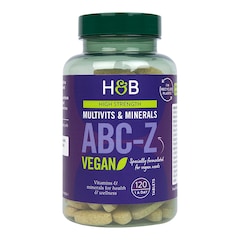
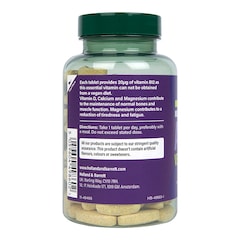
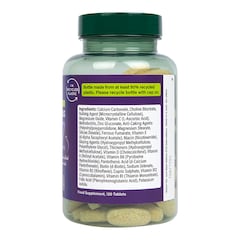
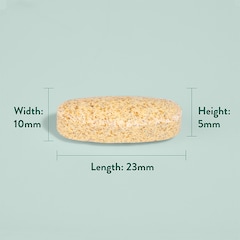
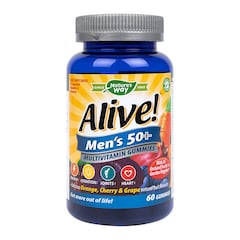
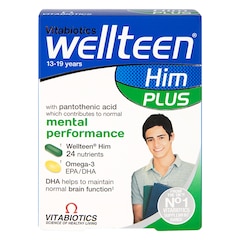
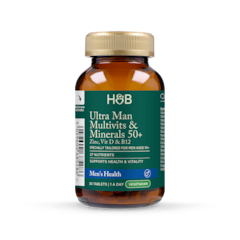
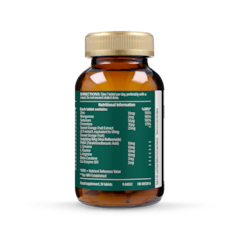
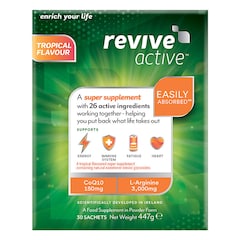
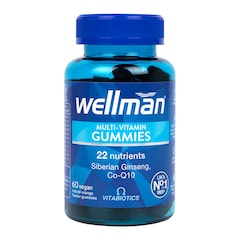
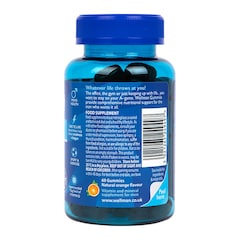
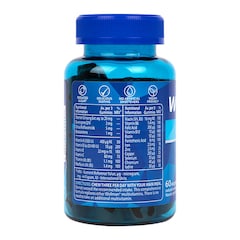
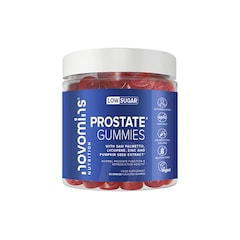
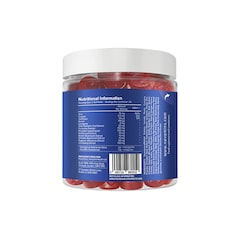



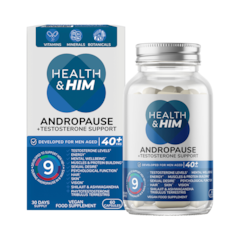
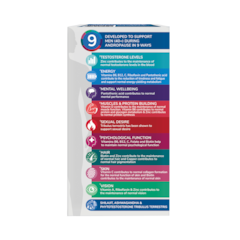
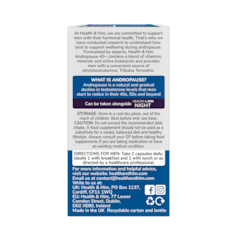
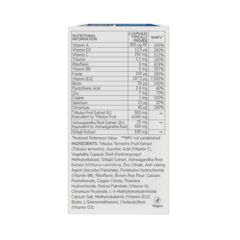
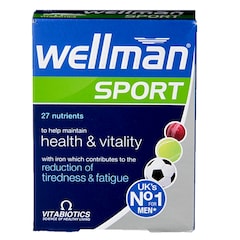
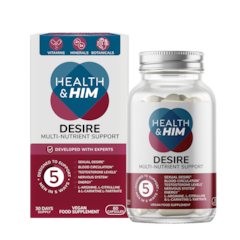
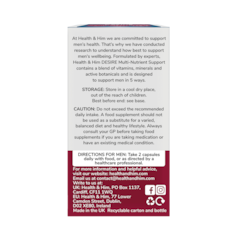
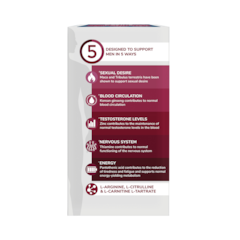
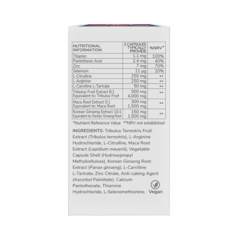
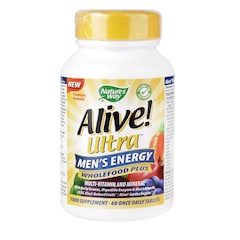
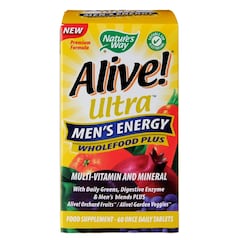
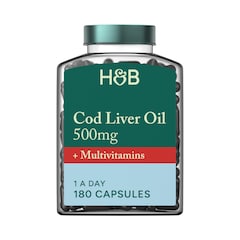
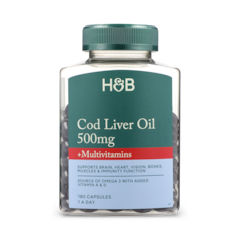
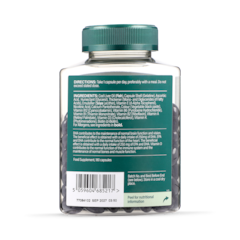
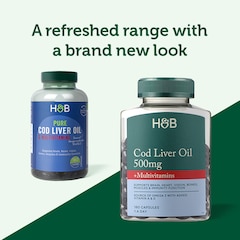
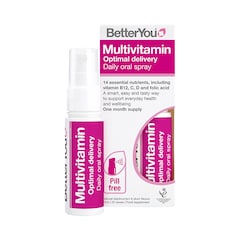
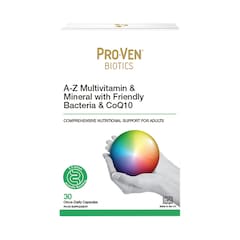
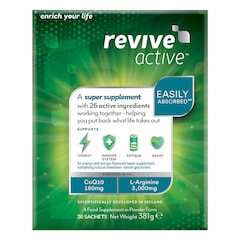
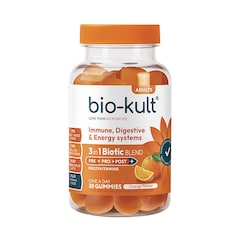
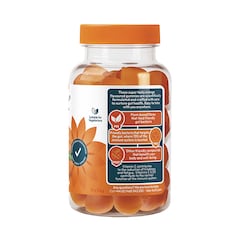
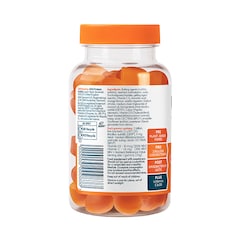
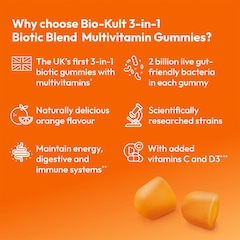
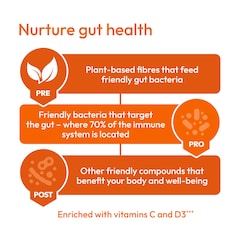
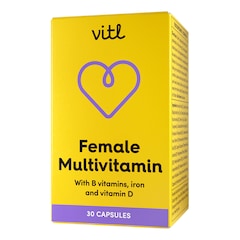
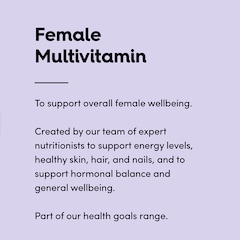
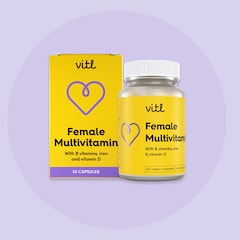
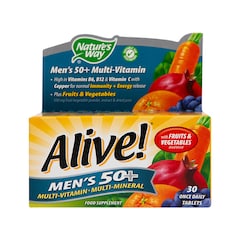
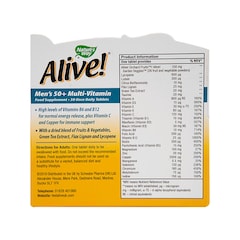
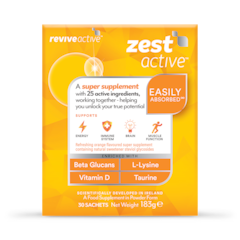
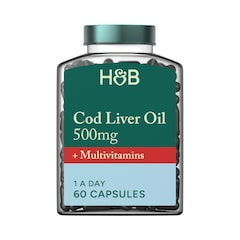
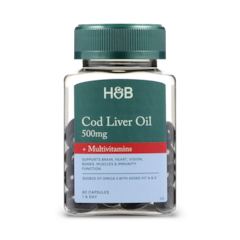
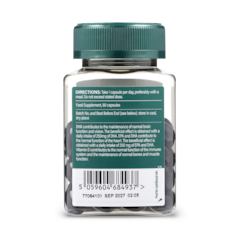
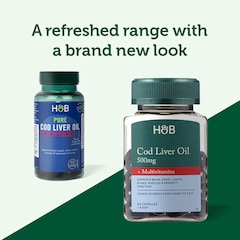
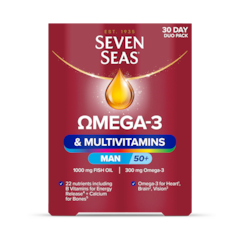
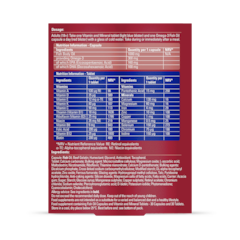
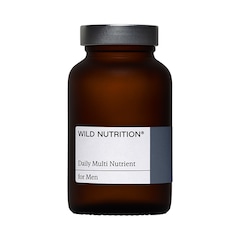
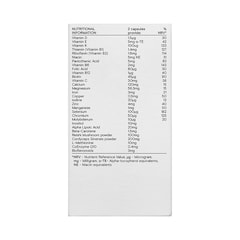
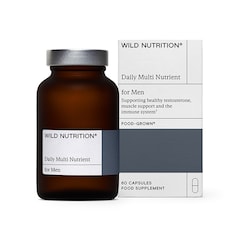
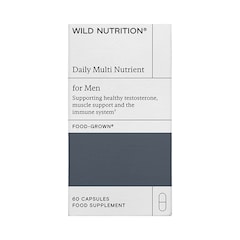
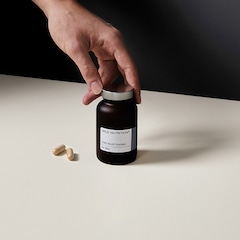
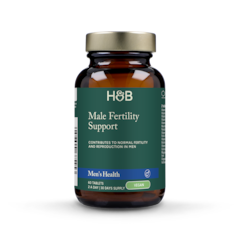
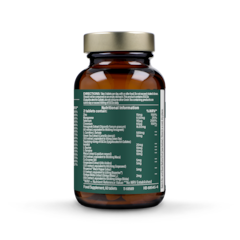
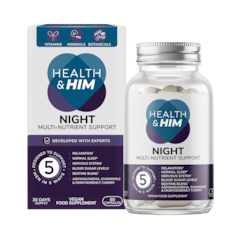
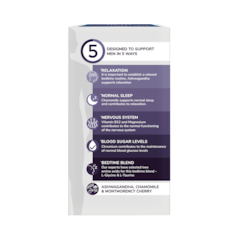
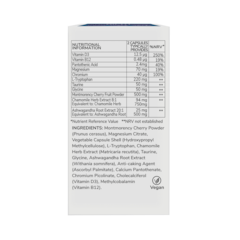
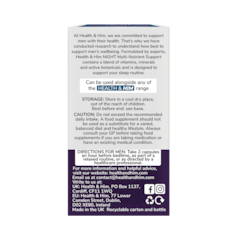
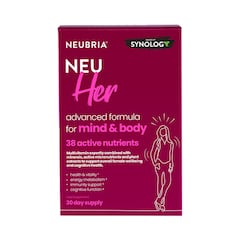
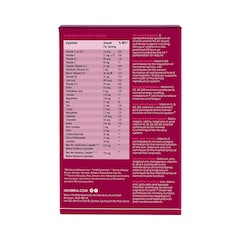
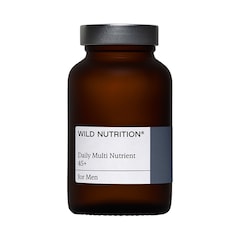
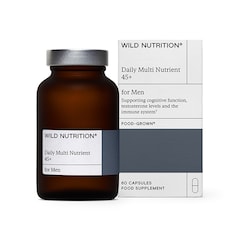
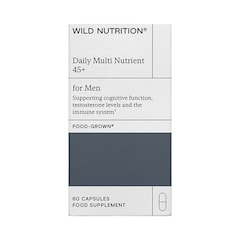
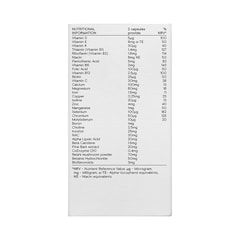
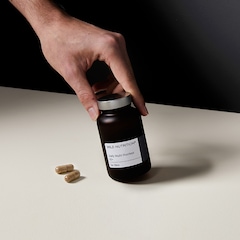
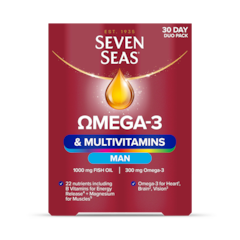
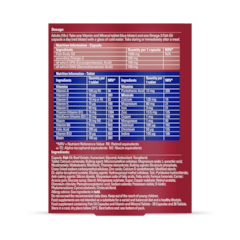
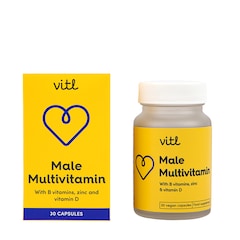
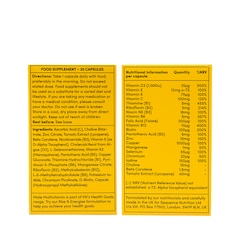
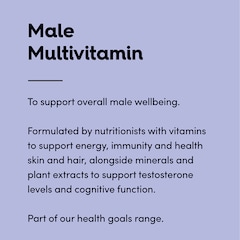
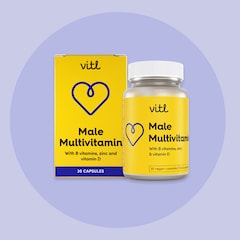
Buy Men’s Multivitamins at Holland & Barrett
Men have somewhat different nutritional needs to women, though of course all our needs also vary by age, body size, and other individual factors such as illnesses, cultural customs, and lifestyle. While a balanced diet can impact men and women in similar ways when it comes to being at risk of cardiac disease, obesity, and diabetes, men typically are larger and have more muscle mass, proportionately, than women.
This key difference is driven by testosterone. The hormone sees men’s higher muscle to fat ratio driving a need for more protein and calories. Likewise, men typically need more energy than women, at around 2,500 kcal per day, compared to 2,000. They also need slightly more sugar and fat. There are a few other subtle differences between the sexes. Men typically have higher levels of red blood cells circulating, and that means they can have lower tolerance to hypoglycaemia.
To be generally happy and healthy, it is recommended that you eat a variety of foods from the five food groups (vegetables, fruit, grains, proteins like meat or nuts, and diary products). You should drink the required amount of water each day, limit foods high in saturated fat (such as cakes and pizza), and also limit salt consumption. Men should also limit their alcohol consumption to two standard drinks a day.
What vitamins do men need most?
People often see bone health as being particularly important in women, but in fact it is just as relevant in men as well, meaning calcium for bones is just as important to men as it is to women. If you do a lot of physical work and are moving your muscles a lot, you will using up vitamin D. This vitamin is also important for supporting your immune system and to absorb the above mentioned calcium.
To use that extra protein you are probably consuming, you need folate. Folate is also important for the formation of normal red blood cells. Good sources of this B vitamin include spinach, Brussel sprouts, asparagus, beans, nuts, and liver.
Situations when men could need vitamin supplements
Perhaps due to diet preferences, many men do not get enough of the mineral magnesium. Typically found in spinach and leafy greens, this mineral is important for supporting the normal function of muscles, nerves and bones.
Other dietary choices or preferences can affect men. Those following a vegetarian diet often do not get enough zinc. Zinc is typically consumed by eating red meat, seafood like oysters, and chicken. Beans and whole grains also have some zinc but the body does not absorb it as well as the zinc in meat.
For men, zinc can be important for helping the body to make proteins and maintaining normal testosterone levels in the blood. We supply a Vegan High Strength Multivitamin to support people on a vegan or vegetarian diet.
This multivitamin includes vitamin D and B12, as well as vitamins A, D, E, C, B1, B2 & B6 and minerals such as calcium, iron & zinc. If you take this multivitamin, take one a day, ideally with a meal. As with all vitamins, do not exceed this dose.
What sorts of multivitamins are there?
We sell Vitabiotics Wellman 30 Tablets for example, which are aimed at men with an active and hectic lifestyle. These multivitamins contain 29 nutrients, including vitamins A, D, E and C. They also have Siberian ginseng, Co-enzyme Q10 and amino acids. To use these, just take one table a day with water or a cold drink and your main meal.
We also sell men’s multivitamins as a Multi Vit Oral Spray. This product contains 14 essential nutrients, and the oral spray is blackcurrant and plum flavour. The format is particularly handy for those with an active or busy lifestyle, as the spray can be used at any time of day, and with or without food.
The spray works by bypassing the digestive system and going straight to the bloodstream, as the tiny droplets are quickly absorbed in your mouth. Use four sprays daily, and spray directly under the tongue or onto the inner cheek. For extra vitamin support for fertility, you can try Vitabiotics Wellman Conception 30 Tablets. These have zinc for reproduction and fertility support, as well as selenium which contributes to normal spermatogenesis.
Buy Men’s Multivitamins at Holland & Barrett
Men have somewhat different nutritional needs to women, though of course all our needs also vary by age, body size, and other individual factors such as illnesses, cultural customs, and lifestyle. While a balanced diet can impact men and women in similar ways when it comes to being at risk of cardiac disease, obesity, and diabetes, men typically are larger and have more muscle mass, proportionately, than women.
This key difference is driven by testosterone. The hormone sees men’s higher muscle to fat ratio driving a need for more protein and calories. Likewise, men typically need more energy than women, at around 2,500 kcal per day, compared to 2,000. They also need slightly more sugar and fat. There are a few other subtle differences between the sexes. Men typically have higher levels of red blood cells circulating, and that means they can have lower tolerance to hypoglycaemia.
To be generally happy and healthy, it is recommended that you eat a variety of foods from the five food groups (vegetables, fruit, grains, proteins like meat or nuts, and diary products). You should drink the required amount of water each day, limit foods high in saturated fat (such as cakes and pizza), and also limit salt consumption. Men should also limit their alcohol consumption to two standard drinks a day.
What vitamins do men need most?
People often see bone health as being particularly important in women, but in fact it is just as relevant in men as well, meaning calcium for bones is just as important to men as it is to women. If you do a lot of physical work and are moving your muscles a lot, you will using up vitamin D. This vitamin is also important for supporting your immune system and to absorb the above mentioned calcium.
To use that extra protein you are probably consuming, you need folate. Folate is also important for the formation of normal red blood cells. Good sources of this B vitamin include spinach, Brussel sprouts, asparagus, beans, nuts, and liver.
Situations when men could need vitamin supplements
Perhaps due to diet preferences, many men do not get enough of the mineral magnesium. Typically found in spinach and leafy greens, this mineral is important for supporting the normal function of muscles, nerves and bones.
Other dietary choices or preferences can affect men. Those following a vegetarian diet often do not get enough zinc. Zinc is typically consumed by eating red meat, seafood like oysters, and chicken. Beans and whole grains also have some zinc but the body does not absorb it as well as the zinc in meat.
For men, zinc can be important for helping the body to make proteins and maintaining normal testosterone levels in the blood. We supply a Vegan High Strength Multivitamin to support people on a vegan or vegetarian diet.
This multivitamin includes vitamin D and B12, as well as vitamins A, D, E, C, B1, B2 & B6 and minerals such as calcium, iron & zinc. If you take this multivitamin, take one a day, ideally with a meal. As with all vitamins, do not exceed this dose.
What sorts of multivitamins are there?
We sell Vitabiotics Wellman 30 Tablets for example, which are aimed at men with an active and hectic lifestyle. These multivitamins contain 29 nutrients, including vitamins A, D, E and C. They also have Siberian ginseng, Co-enzyme Q10 and amino acids. To use these, just take one table a day with water or a cold drink and your main meal.
We also sell men’s multivitamins as a Multi Vit Oral Spray. This product contains 14 essential nutrients, and the oral spray is blackcurrant and plum flavour. The format is particularly handy for those with an active or busy lifestyle, as the spray can be used at any time of day, and with or without food.
The spray works by bypassing the digestive system and going straight to the bloodstream, as the tiny droplets are quickly absorbed in your mouth. Use four sprays daily, and spray directly under the tongue or onto the inner cheek. For extra vitamin support for fertility, you can try Vitabiotics Wellman Conception 30 Tablets. These have zinc for reproduction and fertility support, as well as selenium which contributes to normal spermatogenesis.




